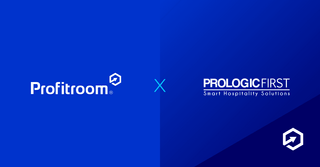5 reasons why your hotel needs a good website
Date
16.04.18
Type
Articles
Category

Websites differ from each other not only in terms of the graphic design and functionalities but most importantly the purposes they serve. Some are a source of information, some attract attention with amazing graphics and images, there are some designed exclusively to sell. What purpose should a good website serve in the hotel industry in which sales relies on trust, good relations and guest loyalty? Below are the 5 purposes a website should serve.
Main communication channel
A website is the first place where Guests look for information about the hotel. The information is available at all times and thus, it is important that they are presented in an attractive way and managed appropriately. A website is also the main platform for communication with the guests. It has to offer forms of contact which users expect but also, or rather first and foremost, users of the mobile site (a growing trend). A hotel website should be designed in a way which offers the most intuitive form of communication (telephone, mail, live chat, etc) regardless of whether guests use a desktop or a mobile version of the webpage. A website should not only include an intuitive way to contact the hotel. In fact, navigating the page should be simple and transparent, the design should be based on a unique know-how which allows us to direct guest through the website in a way that leads the specific goal, for instance, to optimize the booking process by making it available on every level. A website is not only a communication platform which enables a simple communication with the hotel staff. Photos are highly important because they sell dreams and make a guest feel like he wants to be at the hotel without a second of hesitation. On top of that, there is a text which sells emotions related to the experience of the stay.
Hotel trademark
Both the graphic and text layers make a website the hotel’s trademark provided that it corresponds to the hotel - it reflects the character and highlights the advantages. To achieve such a result, we design a website to allow a guest, who has never visited the hotel before, to be there virtually - feel the atmosphere, discover the character. For that reason, unusual, atmospheric images and a unique content are so important to arouse emotions and effectively highlight the brand’s trademarks. Even the design itself should define the uniqueness of the hotel. The ascetic side is not essential in all cases. It all depends on who the offer is addressed to. Trends? They also lie in the technology which is not visible at the first sight.
Building the brand image
Obviously, apart from being user-friendly (intuitive, simple, clear), a website has to be competitive in terms of content compared to an OTA. Thus it is worth to leave some room for to build the brand image, among others, with a presentation of elements such as restaurants, events, special offers, SPA, attractions at the hotel and in the area, as well as the unique solutions which define the hotel’s character. Nonetheless, the hotel image does not only include the visible but, first and foremost, the quality of the service and the establishment of long-term relations with a guest. Guests will confirm their appreciation with reviews on the quality of services, which in turn could translate into the number of reservations. Users frequently make a decision based on the recommendations. A great way to maintain the ties with guests is also a well-designed and regular newsletter.
Source of information
A hotel website is a source of information for both guests and a hotel. For one thing - to make a website content worthy, we need to provide a wide range of information which builds the image and informs about the hotel: its history, available attractions, distinctive traits, conference opportunities, restaurant offers, etc. We must not forget about content optimization - a unique content which is attractive for Google (supporting the website position in the search results). The content should be complemented with an image, equally attractive gallery which comprehensively uncovers the hotel offer. A well-designed website is also a great source of information about guests: their behavior, activities, the frequency of visits, time spent on the website, conversion rate, etc. The data allow us to implement adequate, marketing solutions adapted to the guest activity. The moment we notice that after entering a subpage, users leave it in spite of the call to further action, it is essential to implement changes and optimize the website. Sometimes, all we have to do is place the “call to action” button in a different place to increase the number of clicks.
Direct sales
The main task which Profitroom assumes when building a website is effective sales (of rooms, offers, hotel services) and increasing the percentage of direct bookings by connecting an efficient booking engine. A guest may also check room availability, special offers, and packages, and make a booking on from virtually any level of the site. Thanks to the knowledge about guests' behavior and expectations, we can freely shape special and package offers; Upselling also works great (the possibility to choose attractive additions to your stay directly from the level of the system, such as staying with a dog, a bottle of wine in the room, parking, etc.).
Today, increasing direct sales is one of the biggest challenges for hotels. It limits the costs associated with the sale through the OTA, which in turn translates into a reduction in the commission that we have to pay to them for mediating the sale). In the era of growing competition and the growing list of sales channels, our own sales channel is the most cost-effective solution. It also allows you to build a lasting relationship with the guest. This, in turn, can translate into both his subsequent stays and recommendations for the hotel. It is also worth analyzing the monthly costs related to the remuneration of the OTA - a significant part of this amount can be successfully spent on important marketing activities, related with both the image and pro-sales activities.
Shall a website arouse emotions? Shall it attract the attention and invite guests to discover the unique character of the hotel? Shall it provide information and simplify communication and the booking process? Or maybe, its role is to build the hotel image? Apparently, a well-designed website serves all these purposes. It is a multi-task tool which becomes more powerful and more effective with the new technologies.


